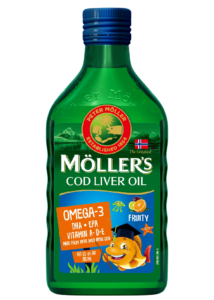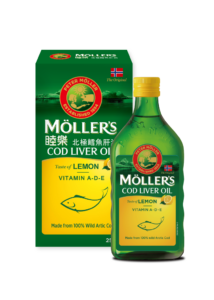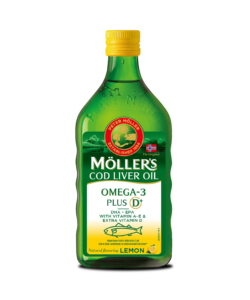Home » 如何改善記憶力

- # omega-3脂肪酸, 大腦, 鱈魚肝油
如何改善記憶力
我們都希望擁有良好的記憶力,而改善記憶力的方法有很多。以下是神經科學研究人員兼《大腦帝國》(Your Superstar Brain)一書作者卡亞•努爾英恩(Kaja Nordengen)提供的一些技巧。
就個人而言,我們期待科學界開發出內建人臉辨識功能的隱形眼鏡,但目前還沒有捷徑。確實,在日常生活中有許多低技術的方法可以彌補記不住東西的缺陷,例如購物清單、食譜、日曆、記事本、便利貼等。但如果忘了帶購物清單或是手機沒電,您可能會在超市感到束手無策,不知道自己去超市是爲了什麼。又怎麼能在酒吧的機智問答之夜大顯身手呢?是時候整理一下記憶了。
改善對人名的記憶力
一見面就忘記一個人的名字往往會導致自我評價。但當記不住一個剛認識的人的名字時就責怪自己記性不好,這是不公平的。此外,在與新朋友打招呼時,您的注意力往往不在名字本身,而是在很多其他方面上。您會好奇對方是一個什麼樣的人,他讓您想起了誰。您也會專注在如何展示自己、握手是否夠有力,以及如何說出自己的名字。我們不該停止在意這些事情,但應該要記住對方姓名;我們必須專注在名字上,並試圖把所有其他印象與名字建立關聯。
如果您不善於辨認面孔,或至少不擅長把名字和臉連結起來,那麼您可能需要轉移更多的注意力到面孔和名字上,並找到連結把兩者聯想在一起。
因此,當您與新朋友問候時,首先要提醒自己專注在對方名字上。直接把名字重複一遍,確保自己理解正確。想一下您是否認識其他同名同姓的人,或這個名字是否讓您想起什麼。我們都知道,重複是將新事物植入記憶的重要工具。試著在對話中使用新名字:「很高興終於見到妳了,桑妮。」
趣味聯想提升記憶力
如果桑妮的膚色恰好因爲自助美黑或粉底而呈現橘紅色,您可能會聯想到傍晚的橘色陽光。如果她臉色蒼白,看起來像是從來沒踏出家門,您可能可以想到:「桑妮從未見過太陽」。這會變成有趣的聯想,幫助您下次見到她時想起她的名字。
如果您在晚餐和家人分享您的一天時還能多說幾遍她的名字,並在腦海中想象她橘紅色的皮膚,那麼您就更有可能記住她的名字了。
增強對清單的記憶
有很多記憶技巧可以幫助您在只讀一遍購物清單後就記住它。其中最常見的方法是建立一條路線,並將需要記住的物品放在這條路線上。
如果您需要記住馬鈴薯、蕃茄、嬰兒食品、洋芋片和咖啡,您可以想像自己經歷一連串挑戰後喝到了一杯新鮮咖啡。首先,想像自己在樓梯上和馬鈴薯賽跑進入口,接著在走廊上和蕃茄玩耍,隨後把一勺嬰兒食品扔向在浴室裡的靶上,走在剛出油鍋還冒著煙的洋芋片上,最後在廚房裡看到一杯香濃的咖啡。之後當您到超市時,您可以在腦海中走一遍這條路線。
記憶不只是按下儲存鍵那麼簡單,更是一個受情緒、動作和聯想影響的動態過程。如果您只是想樓梯上的馬鈴薯,走廊上的蕃茄,浴室裡的嬰兒食品,油鍋裡的洋芋片,廚房裡的咖啡,您也不會記得購物清單的。如果您了解大腦和記憶如何運作,就能提高記憶效率。記憶技巧在工作、學習和日常生活中都能派上用場。學會記住別人的名字,讓對方感覺到被認得,並在酒吧的機智問答之夜大顯身手吧!
What is good health?
Do you have a good lifestyle?
Lifestyle simply means the way in which you live. Health and lifestyle go hand in hand. You might feel you have a good lifestyle if you are physically active, eat healthily and generally experience a sense of wellbeing. Conversely, if you want good health you should also have a good lifestyle.
Physical activity is the major contributor to a good lifestyle, but diet, drugs, stress, sleep and social conditions are also play an important role. Being able to use the body properly to avoid injury also affects lifestyle. Physical activity can also prevent depression and help you to recover more quickly from mental illness, both of which obviously affect your lifestyle.
Diet can be a difficult topic for many. Perhaps you eat too much or too little or maybe you find it hard to know what foods to combine to have a balanced diet. It’s also important to eat food that contains important vitamins, minerals and dietary fibre, omega-3 and antioxidants. On top of all this, you also need to get enough energy, protein and the correct fatty acids. The requirement for these nutrients changes throughout your life. When you are older you also have different requirements than children and younger adults. Women also have different requirements than men. Pregnant and breastfeeding mothers also have special requirements.
When you get older, you lose muscle mass and your body requires less energy and therefore less food. You may lead a less active life than you did before, which is why you require less food. However, your need for minerals, vitamins and other nutrients remains the same. Of course, there are plenty of healthy and active older people, but when you reach 70 to 80 years of age, it’s easier to become ill, especially during flu season.
Some steps you can take to improve your lifestyle and health are to:
- eat a healthy and varied diet
- stay active
- watch your weight
- avoid too much alcohol and don’t smoke
- get enough sleep
- think positive
- practise good hygiene
What is good quality of life?
The World Health Organisation (WHO) defines quality of life as a state where the individual can realise their potential, cope with normal stressful situations, work in a rewarding and positive way, and be able to contribute to others and society.
Quality of life is a wide and somewhat diffuse concept that includes joy in, and a desire for, life. These are values that are rather felt than measured, which in turn are based on personal environment and choices. Quality of life doesn’t necessarily depend on being healthy or sick. It’s the moments between worries, sorrows, problems and ailments that matter. For example, if you have a chronic illness, a feeling of mastery can be important when talking about quality of life.
To sum up, quality of life is a combination of health, lifestyle, networks and social support. It’s about experiencing joy, meaning in life, satisfaction, security and a sense of belonging, as well as being able to use your strengths. It’s also about feeling interest in life, coping with everyday situations and a being committed to something or someone. If you have good quality of life, you will be able to cope better with the inevitable stressful situations in life.
Learn more
Get inspiration on our Instagram





